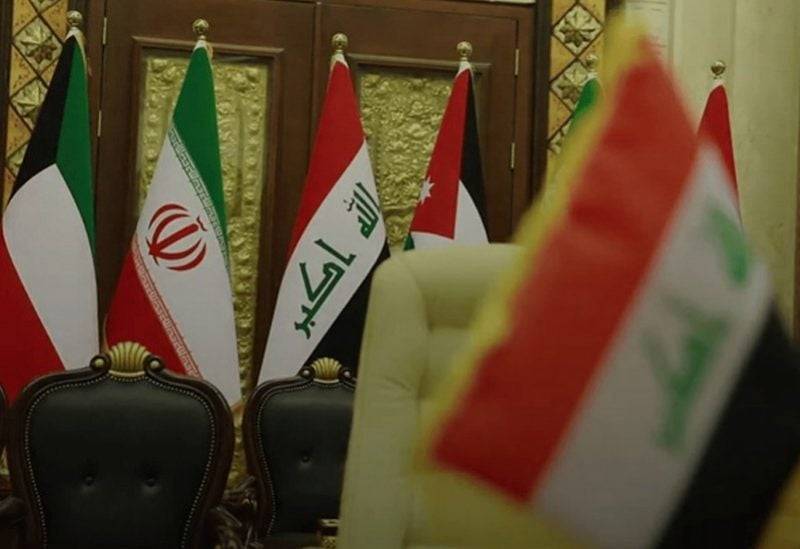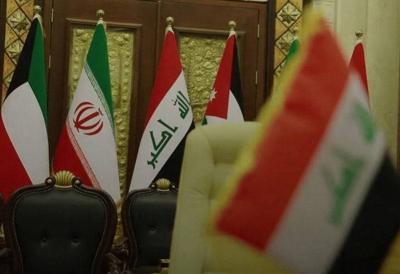"Keep your eyes on Iraq," the famous phrase from President Camille Chamoun, who was adept at studying geopolitical maps and their impact on countries and their systems, including Lebanon, resonates today. Chamoun started with the idea of "a strong Iraq, a stable Lebanon," emphasizing the political connection between the two nations. Currently, Lebanon, amidst its crises and presidential void, finds itself on the Iraqi table at the "Baghdad II" conference, which includes Egypt, Saudi Arabia, the UAE, Qatar, Turkey, Iran, Bahrain, Jordan, Iraq, along with France.
But what role does Lebanon, which is both absent and present, play in this conference's agenda? Will the efforts of these countries, particularly France, stir the stagnant waters of Lebanon's crises? Major General Khaled Hamada asserts in his conversation with "Al-Markaziah" that "Lebanon will be on the conference agenda, and it will not be absent from the final statement. However, he perceives that despite the participation of most countries influencing the Lebanese situation, including France, Saudi Arabia, and Iran, the conference is unlikely to produce advanced solutions to the current situation, especially since reports indicate that Iran will participate at the level of the foreign minister. Consequently, this level of representation will not exceed the framework of discussions and consultations, perhaps confirming general topics."
Thus, General Hamada calls on the Lebanese "not to bet on this conference, as it will not evolve beyond previously established principles that have been exits in many conferences held in Qatar or Saudi Arabia or those that Macron and the U.S. administration participated in.. It will also not go beyond past ideas, most notably the commitment to the Taif Agreement, electing a president of the republic, proceeding with the required structural reforms, as well as reforming the banking sector." He emphasizes that the hallmark of stagnation will characterize the proceedings of the conference, as there will be no Lebanese will to escape this impasse.
Regarding Iranian Foreign Minister Hossein Amir-Abdollahian's remarks preceding the conference, in which he confirmed his country's readiness to resume diplomatic relations with Saudi Arabia, and that the Baghdad II Conference could be a step towards resolving current crises, Hamada placed this statement within the broader context that has been previously echoed by the Islamic Republic several times, while the outcomes of the Saudi-Iranian meetings remain stagnant.
In Hamada's view, "Iranian officials will not exit crises by blaming other parties for not interacting with or understanding them. Reality indicates that Tehran is an aggressor state against the Arab world, from Yemen to Saudi Arabia, the UAE, Lebanon, and Syria. Therefore, it cannot expect any response from the Kingdom of Saudi Arabia unless it corrects its course in the region by ceasing its aggressive activities, which manifest in exporting militias and other hostile actions that also significantly impact Lebanon, which is one of the countries most affected by the ongoing regional conflict."




